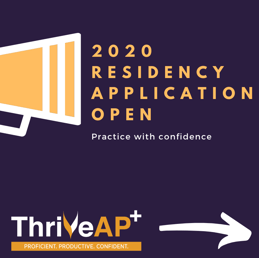3 Compelling Reasons You Shouldn’t Wait to Start Working as a NP
There are a number of reasons nurse practitioners wait to start working after graduation. A tight job market, personal circumstances and just plain fatigue can delay the start of a job search. But, in my conversations with new graduate nurse practitioners, I’ve heard a number of themes that tend to work against new NPs who delay a job search. Taking too much time off after graduation can be a detriment to the nurse practitioner career you’ve worked so hard to be educated for. Here are 3 reasons to begin working as soon as possible.
1. Licensing Woes
In order to practice as a nurse practitioner, you’ll need to have a license to work in the state where you’re employed. State licensing requirements vary significantly so get familiar with those in the locations where you might want to work. In some states, NPs encounter licensing hurdles if there is a significant gap between the time they graduate and the time they obtain employment or experience as a NP. In Oregon, for example, a nurse practitioner that graduated more than one year ago must have at least 192 hours of NP practice experience to obtain a license. This practice requirement increases to 960 hours if the NP graduated more than 2 years ago. This means that if you’re a new grad nurse practitioner in the State of Oregon who waits longer than one year to get licensed post-graduation, you may need to go out-of-state to get some NP experience before you’re eligible to work in Oregon.
Don’t let unexpected licensing regulations curb your ability to use your degree. Obtain your NP license as soon as possible after graduation, even if you don’t plan to work immediately.
The phrase “use it or lose it” does carry weight when it comes to your clinical skill set. It’s going to be much easier to recall the latest hypertension treatment algorithm immediately post-graduation than if you wait a year to enter practice. Not to mention, the longer you wait the more your confidence in your ability to recall these essential clinical pearls will decrease as well. Practicing immediately after your NP graduation allows you to use your newly attained skills and knowledge while they’re still fresh so you’re as well prepared to enter practice as possible.
3. Resume Gap
If you’re unemployed (or even employed but not in a role that uses your nurse practitioner degree), after a few months prospective employers start to grow suspicious. Do you really have motivation to work in the clinical setting? Is there something wrong with you or your skills that has prevented others from hiring you? Why is it taking you so long to land a job? Whether or not these suspicions are founded in truth, a gap on your resume, even post-graduation, doesn’t look good – especially when you’re applying for a job in a clinical role that requires significant recall. Prevent your resume from landing in the recycle bin by kicking off your job search immediately after (or even a bit before) wrapping up your nurse practitioner program.
While you may have totally legitimate reasons for taking a breather between NP graduation and finding employment as a nurse practitioner, this plan can work against you. Carefully weigh your options as you consider your post-graduation timeline.
You Might Also Like: How to Explain a Nurse Practitioner Employment Gap with Ease


